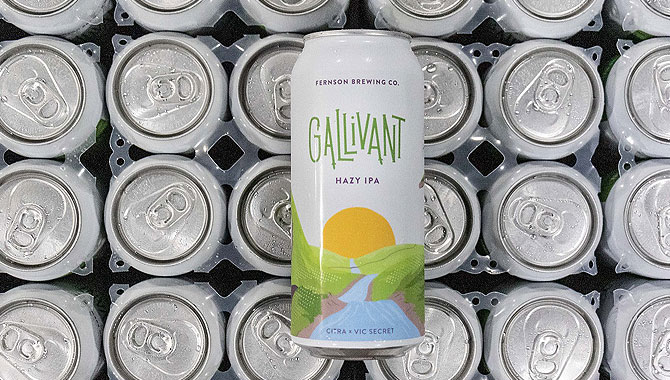RPC Group has said that WaveGrip’s G1 multi-packing applicator has enabled craft brewer Fernson Brewing automate its packaging line.

Image: WaveGrip's multi-packing applicator has helped Fernson automate packaging line. Photo: courtesy of RPC Group Plc.
Opened four years ago in Sioux Falls, Fernson Brewing currently operates in two locations. It has a brewery and taproom on the outskirts of town, while taproom and kitchen right in the centre of Sioux Falls.
The brewery provides five major beers, including hoptastic IPA Shy Giant, Lions Paw drinking lager and Curio citrusy tart brew, as well as one-off specials for season guests.
Fernson is also offering a range of beers in cans, enabling drinkers to have the brewer’s beers at home.
Fernson Brewing CEO Joel Thompson said: “We are often asked why we chose cans for our beers rather than bottles and there are two basic reasons. One is that cans are better at protecting each beer from light and oxygen and two is because aluminum cans are lighter and easier to recycle than glass.”
The G1 is entry-level multi-packing for artisanal producers, and holds capacity to create professional multi-packs within seconds.
The G1 multi-packing applicator provides speeds of up to 100 cans-per-minute (cpm), allowing the firms to improve manufacturing process and reduce cost of materials and labour.
WaveGrip is claimed to be the lightest carrier on the market and weighs less than 4g for a standard six-pack ring carrier.
WaveGrip carriers are also said to offer sustainability benefits to the brewery, in addition to delivering efficiency upgrades.
The company said that all WaveGrip carriers are 100% recyclable and in line with current US packaging regulations by being photodegradable.
WaveGrip managing director Aaron McIvor said: “We wanted the G1 to be an accessible solution for craft brewers, giving them an entryway into automated multi-packing of cans and allowing them to increase their production at an affordable cost.
“We are delighted to see that Fernson are already benefitting from reductions in labor and material to pack their beers and look forward to these growing as their production scales up.”
